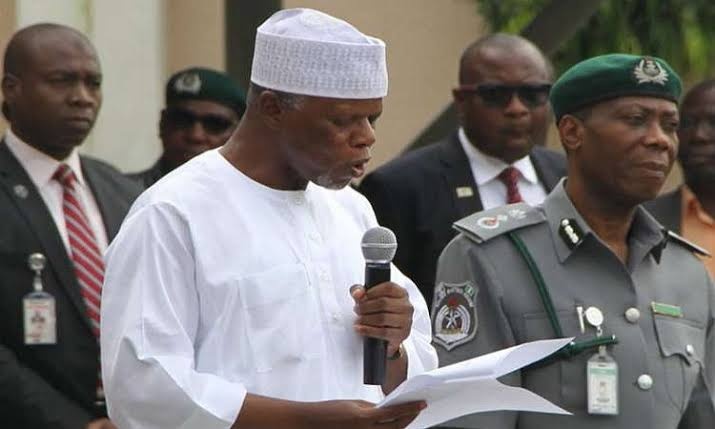Judiciary
Nigeria must overhaul the Judicial system to help Buhari fight corruption – Custom boss, Ali

The Comptroller-General of the Nigeria Customs Service, Hameed Ali has called for structural changes in Nigeria’s judicial system to aid against fight against corruption.
Ali was speaking at the News Agency of Nigeria (NAN) forum in Abuja on Sunday when he expressed his solution to Nigeria’s campaign to end corruption.
Tackling corruption was one of the focal promises that preceded the election of the Buhari administration in which Ali works under.
And the administration is being judged by its performance in managing a corruption culture that has plagued the Nigeria system.
“For corruption to be fought to a standstill in the country, there are components that must work effectively,’’ Mr. Ali stated.
“Corruption is an area we are still grappling with. It is an area we need to have holistic views of our system. If the judiciary does not work, there is no way anything can happen.
“So we must overhaul our judiciary and overhaul the enforcement and if these two work efficiently, corruption will be fought.
“One of our strong pillars of our promise is that we are going to fight corruption and of course, you know the president is somebody that has a penchant for fighting corruption. He is incorruptible.
“His stance on corruption, especially when he was the head of state, made him standout as somebody who fights corruption.
“Our biggest bane is corruption in Nigeria and if we can reduce our corruption level by 30 to 40 percent, I tell you the progress we will make in this country will be tremendous.
“If you realise, the money that goes out of the system through corrupt practices is humongous and so what we really need to do is to fight this corruption.”
Ali also explained that the border closure policy implemented by the government was to send a message to neighbouring countries after years of refusing to heed protocols and Memorandum of Understanding (MoU), signed on border management.
The Buhari administration shut down all land borders in the county in August 2019 citing that the country needed to stop the struggling of drugs, small arms and agricultural products, especially rice.
But in December 16, 2020, the Federal Executive Council (FEC) approved the reopening of four land borders with immediate effect, while others will be reopened subsequently.
The Minister of Finance Budget and National Planning Mrs Zainab Ahmed, who disclosed after the week’s virtual FEC meeting said restriction on the importation of some commodities, like rice and other products, would continue to be enforced.
He said, “We just set up a joint border patrol. It is an offshoot of the joint border drill, which was the operation we launched to close our borders.
“The intention was not to close our borders perpetually. It was to send a message to our meighbours that they cannot continue to go against the protocols that are established and acceded to.
“When we abide by certain protocols on movement of goods across our borders, we discovered that those rules are no longer adhered to by our neighbours.
“We made multiple advances. We have reached across, we have signed papers in terms of MoU but none of them worked.
“So we are left with no option than to close our borders and send a message. “We developed joint border drill to effectively close the borders and manned it and we now had to look at it that we cannot continue to close our borders so what do we do?
“We reopened it and we are now working with our neighbours — our counterparts in Niger Republic and Benin Republic.
“We have to come up with a concept that now gives us the chance to monitor and manage our borders without closing the exits and entrances, so that is how we came up with joint border patrol.”






